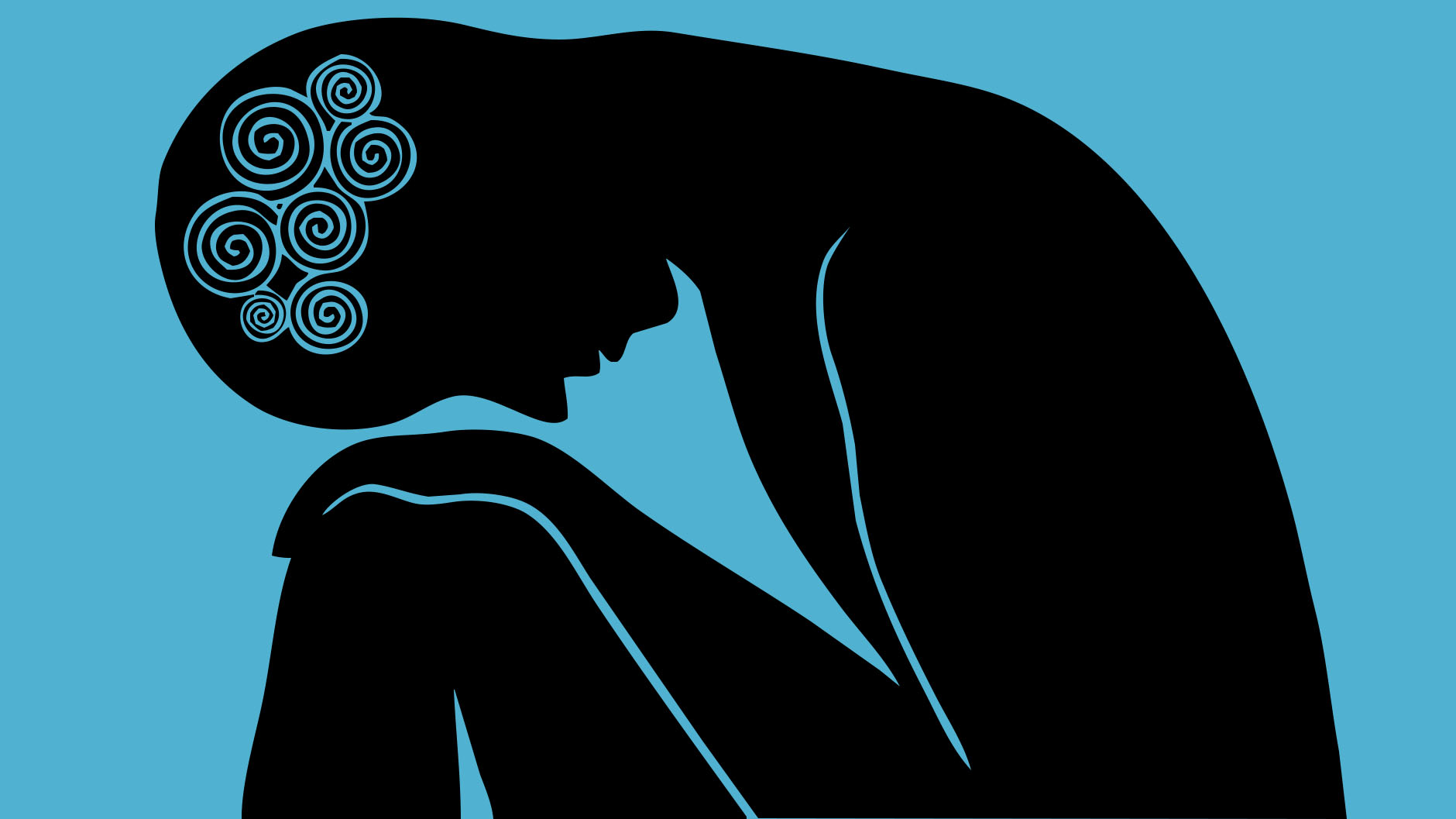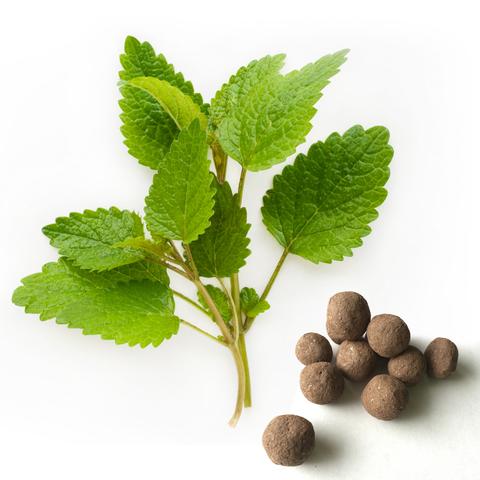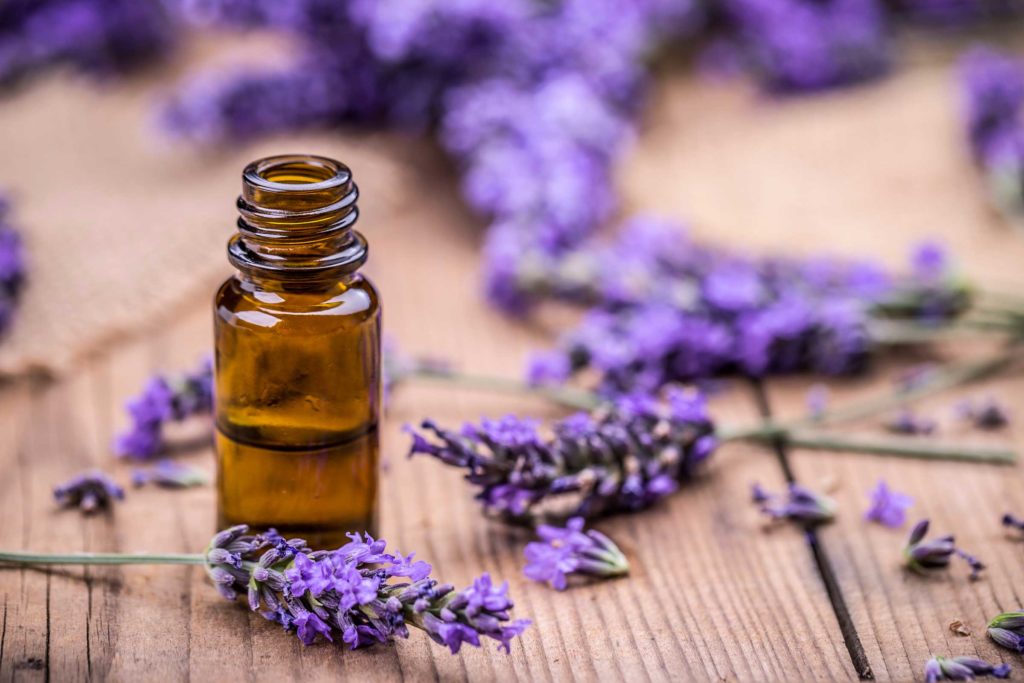The nutrient that I want to talk about today isn’t very well known.
But it has helped me manage OCD, anxiety and depression over the years, especially after I weened off psychiatric medication.
It’s called inositol, or myo-inositol.
Inositol is a non-essential vitamin and naturally-occurring compound in the body. It's structurally similar to glucose and small amounts of it can be found in food.
Researchers extracted and isolated it in 1849, but it wasn't until the 1980s that they discovered high levels of it in the central nervous system, and found that it plays a key role in neurotransmission (1, 4).
Studies show that it can increase GABA-A receptor function and enhance serotonin receptor sensitivity, working similarly to anti-anxiety (benzodiazepines) and antidepressant (SSRIs) medications (2-3, 5).
Inositol levels in the brain have also been shown to be lower in people with several neuropsychiatric conditions (30).
Considering this, it’s not too surprising that researchers have found that supplementing with it can help treat anxiety and depression.
If you have one of the following anxious and depressive conditions, inositol could help you.
Inositol and Depression
First of all, researchers have found reduced levels of inositol in the spinal fluid of depressed patients (14).
They’ve also found significantly less inositol in brain samples of suicide victims (16).
Transcranial direct current stimulation (tDCS) is a form of neurostimulation that helps treat depression, and one of the reasons it works may be because it causes a significant increase in brain inositol levels (15).
But you don’t need to do tDCS to increase inositol levels in the brain.
Supplementing with inositol has also been shown to increase inositol concentration within the central nervous system and treat depression in adults (17):
In one study, 11 people with treatment-resistant depression took 6 grams of inositol every day for four weeks, and nine of them experienced major improvements in their mood (18).
Another study had depressed patients take 12 grams of inositol every day for four weeks. Researchers found that these depressed patients experienced significantly greater improvements in their depression compared to the patients who took placebo (19, 22).
And people with bipolar disorder who were going through a major depressive episode supplemented with inositol for six weeks, and it led to a 17.4% reduction in their depressive symptoms (20).
Despite all of this research, it’s important to point out that I found one meta-analysis concluding that “it is currently unclear whether or not inositol is of benefit in the treatment of depression” (21).
That’s not to say it won’t work for you though.
In my experience, inositol does help with depression – just not with everyone.
If you typically respond to SSRI antidepressants (like I do), it’s more likely that inositol will help you with your depressive symptoms (23).
If SSRI antidepressants don't improve your mood when you take them, it’s less likely that inositol will help you.
Overall, it’s worth a try though.
Inositol and Premenstrual Dysphoric Disorder (PMDD)
Premenstrual dysphoric disorder (PMDD) is a condition in which a woman has severe depressive symptoms, irritability, and tension before menstruation, which disrupts her social and/or occupational life. PMDD symptoms are more severe than symptoms of premenstrual syndrome (PMS) (12).
Inositol has been shown to help treat PMDD.
Over the course of six menstrual cycles, women with PMDD supplemented with 12 grams inositol daily, and they experienced a significant reduction in their symptoms of dysphoria and depression.
Researchers concluded that they “were able to clearly prove the efficacy of myo-inositol in PMDD” (13).
Inositol and Anxiety, Panic Disorder and Agoraphobia
Based on my research and experience, inositol is better at reducing anxiety and treating anxious disorders than depression.
Panic disorder is diagnosed in people who experience sudden panic attacks and are preoccupied with the fear of a recurring attack.
Some people stop going into environments in which they previously had a panic attack, anticipating that it will happen again. This is considered agoraphobia. They may avoid public places such as shopping malls, public transportation, or large sports arenas.
Many patients with panic disorder and agoraphobia don’t respond well to current treatments, or they discontinue drugs because of their side effects.
Luckily, there is research showing that inositol can help treat both of these conditions with little to no side effects.
In one study, researchers compared the effects of inositol to fluvoxamine (Luvox), an SSRI antidepressant commonly used in the treatment of panic disorder.
Twenty patients with panic disorder took 18 grams of inositol every day for one month, and then took 150 mg of fluvoxamine every day for another month.
Researchers found that inositol decreased the number of weekly panic attacks per week by four, while fluvoxamine only reduced them by two. Fluvoxamine also had side effects such as nausea and lethargy, and inositol didn’t have any side effects (6).
In another study, twenty-one patients with panic disorder (with and without agoraphobia) took 12 grams of inositol daily for four weeks.
Compared to placebo, the frequency and severity of panic attacks, and the severity of agoraphobia, significantly declined after taking inositol. And there were hardly any side effects!
The researchers concluded that inositol is an “attractive therapeutic for panic disorder” (7, 8).
Inositol has also been shown to reduce anxiety in children and decrease anxiety-like behaviours in rats (24, 25).
Inositol and Obsessive Compulsive Disorder (OCD)
Obsessive-compulsive disorder (OCD) is a psychiatric disorder characterized by obsessive thoughts and compulsive behaviors.
In his book Nutrient Power, Dr. William Walsh says he uses inositol with all his patients with OCD.
I personally noticed a reduction in my obsessive-compulsive tendencies while supplementing with it.
And there is some research to support this.
In one study, patients with OCD took 18 grams of inositol or placebo daily for six weeks.
At the end of the six weeks, the patients who took inositol had significantly lower scores on the Yale-Brown Obsessive Compulsive Scale.
The researchers concluded that inositol can effectively treat obsessive-compulsive disorder (9, 10).
Check out this article for 21 other ways to treat OCD.
Inositol and Binge Eating Disorder and Bulimia
Binge eating disorder (BED) is a condition characterized by frequent and recurrent binge eating episodes, while bulimia nervosa is characterized by binge eating followed by purging.
Research has shown that inositol supplementation can help with both of these conditions.
In one study, people with these disorders took 18 grams of inositol daily for six weeks, and researchers found that it reduced symptoms of binge eating significantly better than placebo. It also reduced depressive and anxiety scores.
The researchers concluded that “inositol is as therapeutic in patients with bulimia nervosa and binge eating as it is in patients with depression and panic and obsessive-compulsive disorders” (11).
Inositol Dosage and My Personal Review and Experience
As a standard dietary supplement, many people take between 1 and 3 grams of inositol daily.
But for the brain and mental health benefits, you need to take much higher doses.
The usual dosage for anxious disorders ranges between 12 and 18 grams. One of the depression studies used just 6 grams, but I haven’t found any research suggesting that it works neurologically at doses any lower than that.
I took 18 grams (4.5 grams, 4 times daily) of this inositol powder while weening off psychiatric medication and it made the transition much easier.
However, some people find relief with lower dosages.
Therefore, it’s best to start with a lower dose and work your way up to 18 grams if necessary.
Since you’ll likely need to take large amounts, and capsules usually only contain 500 mg of inositol, I recommend inositol powder.
I used this one, but there are a number of different choices online. It’s easy to consume because it has a sugary taste.
You may need a scale to measure your doses.
Inositol is known to be extremely safe. There are no documented cases of drug interactions from studies in which inositol was taken alongside psychiatric medications such as SSRIs.
I started taking it while taking medication, and soon realized I was experiencing more side effects from my antidepressant. This is sometimes a sign that you're on too high of a dose of medication. At that point, I could lower my SSRI dose easily because inositol was helping.
This anti-anxiety supplement also includes several other natural compounds that have helped me manage my anxiety over the years. It can help reduce stress and anxiety alongside inositol.
Conclusion
If you struggle with anxiety or depression, supplementing with inositol is worth a shot.
The current research suggests it can help with illnesses that respond well to SSRI antidepressants, but probably isn’t beneficial to people struggling with other disorders, such as autism, Alzheimer's disease, schizophrenia and ADHD (26-29).
This aligns with my personal experience, as it helped me the most with anxiety and depression. And I had pretty severe symptoms of ADHD and cognitive decline, and inositol never helped me with that.
Go ahead and try it yourself and see if it helps you.
I hope it does.
References:
(1) https://www.ncbi.nlm.nih.gov/pubmed/6278902
(2) https://www.ncbi.nlm.nih.gov/pubmed/22986984
(3) https://www.ncbi.nlm.nih.gov/pubmed/9169302
(4) https://www.ncbi.nlm.nih.gov/pubmed/3017301
(5) http://www.ncbi.nlm.nih.gov/pubmed/8131066
(6) https://www.ncbi.nlm.nih.gov/pubmed/11386498
(7) https://www.ncbi.nlm.nih.gov/pubmed/7793450
(8) https://www.ncbi.nlm.nih.gov/pubmed/9169302
(9) https://www.ncbi.nlm.nih.gov/pubmed/8780431
(10) https://www.ncbi.nlm.nih.gov/pubmed/9169302
(11) https://www.ncbi.nlm.nih.gov/pubmed/11262515
(12) https://www.ncbi.nlm.nih.gov/pubmed/20359434
(13) https://www.ncbi.nlm.nih.gov/pubmed/22031267
(14) https://www.ncbi.nlm.nih.gov/pubmed/623854
(15) http://onlinelibrary.wiley.com/doi/10.1002/mrm.21709/full
(16) https://www.ncbi.nlm.nih.gov/pubmed/9247405
(17) http://www.ncbi.nlm.nih.gov/pubmed/24424706
(18) http://onlinelibrary.wiley.com/doi/10.1002/hup.470080109/abstract
(19) http://www.ncbi.nlm.nih.gov/pubmed/7726322
(20) https://www.ncbi.nlm.nih.gov/pubmed/16449473
(21) https://www.ncbi.nlm.nih.gov/pubmed/15106232
(22) https://www.ncbi.nlm.nih.gov/pubmed/9169302
(23) https://www.ncbi.nlm.nih.gov/pubmed/8780431
(24) http://www.ncbi.nlm.nih.gov/pubmed/11172878
(25) http://www.ncbi.nlm.nih.gov/pmc/articles/PMC3875047/
(26) https://www.ncbi.nlm.nih.gov/pubmed/7894259
(27) https://www.ncbi.nlm.nih.gov/pubmed/21917766
(28) https://www.ncbi.nlm.nih.gov/pubmed/9169302
(29) https://www.ncbi.nlm.nih.gov/pubmed/9169302
(30) http://onlinelibrary.wiley.com/doi/10.1002/mrm.21709/full















